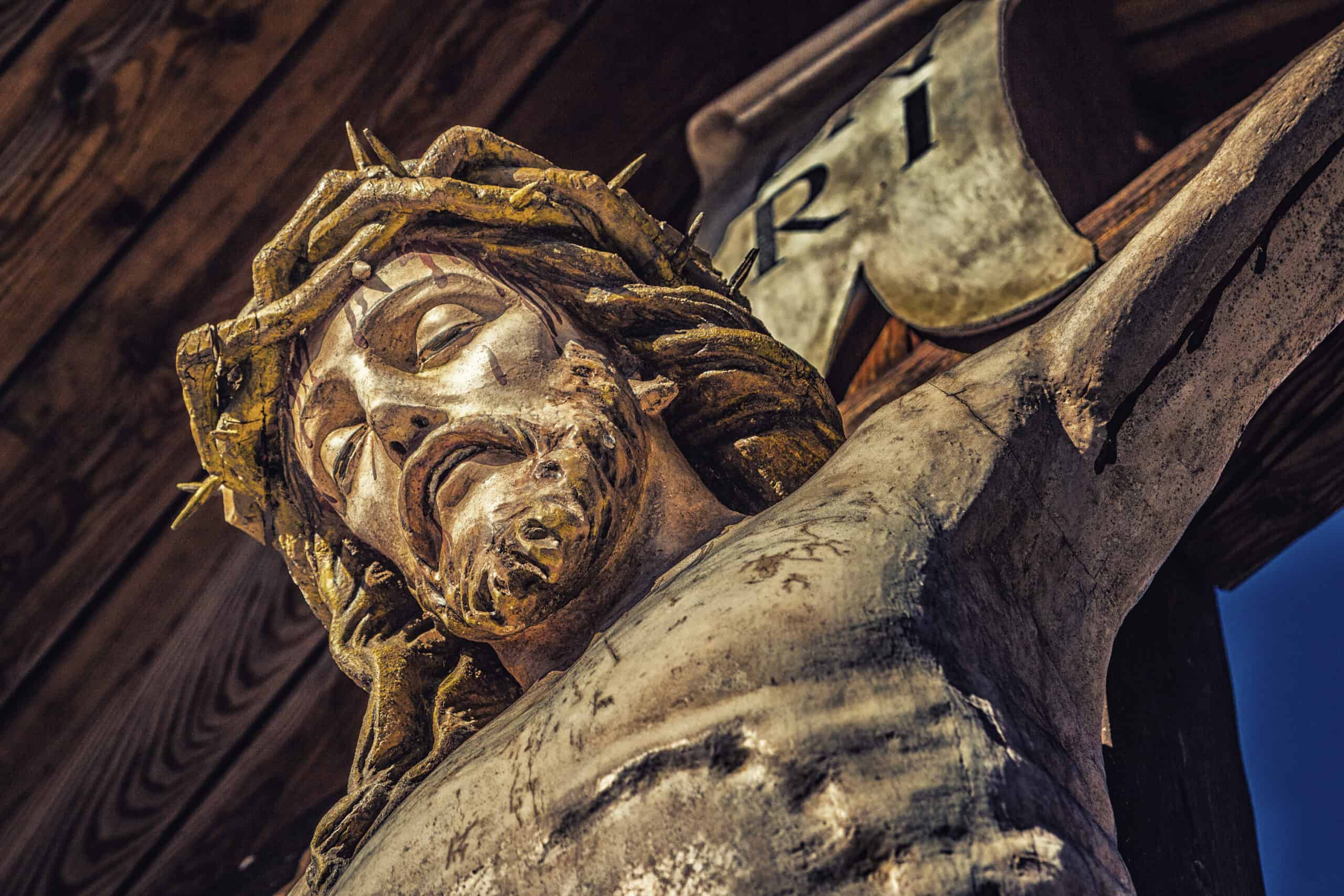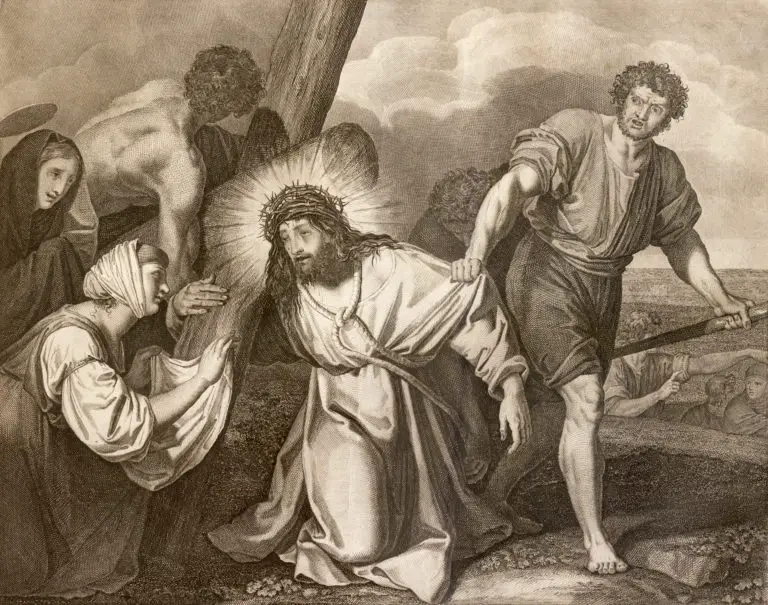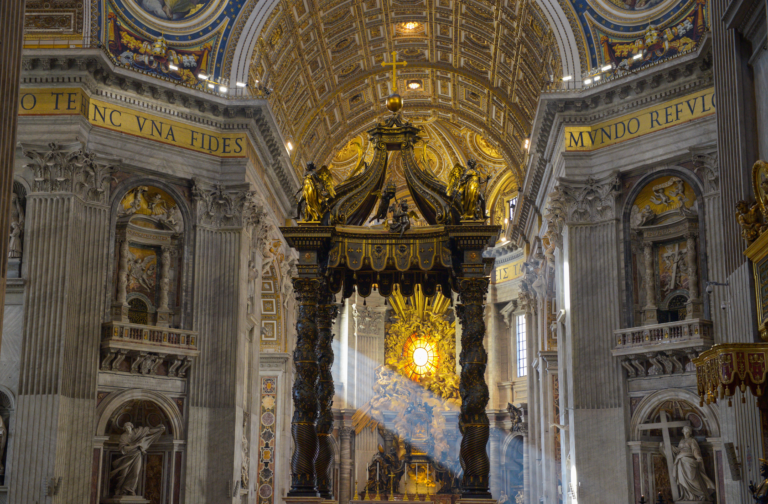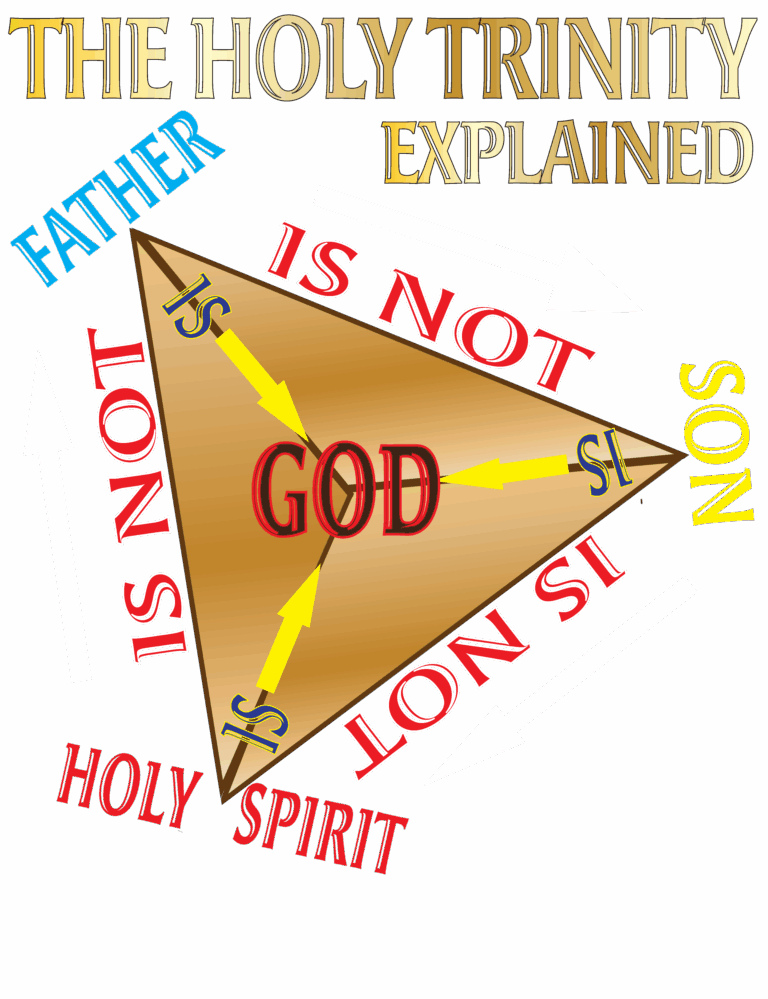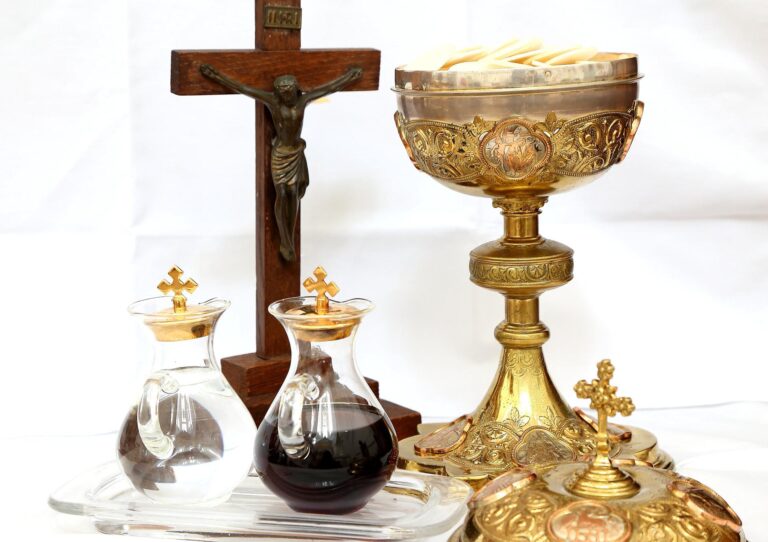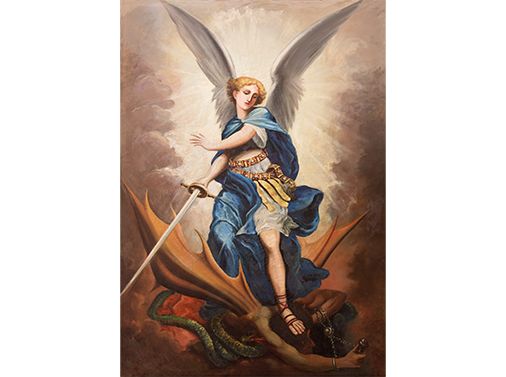Do Death Bed Conversions happen?
A death bed conversion is not uncommon, in fact several high-profile people have been graced with a death bed conversion. A death bed conversion is the last moment, before entering into eternal life, that a repentant sinner is graced with God’s mercy to turn and reconcile with the Creator.“
For every saint there is a past, and for every sinner there is a future” remarked Oscar Wilde prior to having his own death bed conversion. The mercy of God is never more at work than at these last moments. Spending their life in sin and away from God, the Church and its teachings, the Sacrament, and the opportunity to live a life pleasing to God, the individual risks his/her eternal life by leaving this grace to the last minute.
Are there Conversion Stories in Scripture?
Without going into many examples, I will highlight several along with Parables before leading to death-bed conversions.
The Scripture provides a multitude of examples of conversions for example King David who wrote the beautiful Psalm 51 “Have Mercy on me, O God”.
The New Testament tells of Zacchaeus – a rich tax collector – who upon seeking Jesus, converted through his desire to give to the poor and to pay those he has wronged fourfold (St Luke 19:1-10). Jesus expressed his joy by stating “salvation has come to this house”.
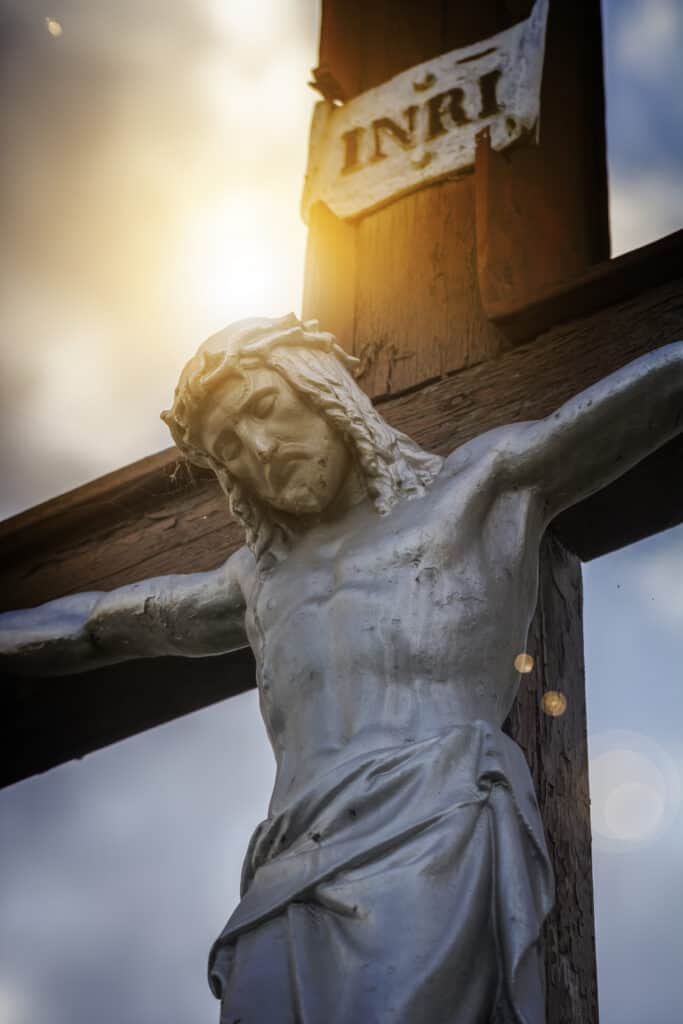
Jesus added that He came to seek the sinner. Jesus in the New Testament provides several parables on the mercy of God. The clearest example of a death-bed conversion is that of the Good Thief. These demonstrate that it is not how it begins, whilst this is important as we do not know the end, it is how it ends.
Should we leave our conversion to the last moment?
Not only is this foolish but a gamble taken with our eternal destiny, for whilst God is merciful, God is also just. We should ask ourselves a very important question: Will I receive this last-minute grace to repent and be ready to face God?
Jesus provides us with a warning when He speaks of the Parable of the Ten Virgins in St Matthew 25: 1-13, where five were wise and the five were foolish. The five wise virgins had prepared for the welcoming of the Bridegroom by taking oil with them to light the lamps.
On the other hand, the foolish virgins were not ready. Arriving at the door, the unprepared virgins were turned away by the bridegroom, saying:
“Amen, I say to you, I know you not”.
Jesus warns us:
“Watch ye therefore, because you know not the day nor the hour” (St Matthew 25: 1-13).
What about those who are like the foolish unprepared virgins?
Based on this Parable, no chance!
Whilst a miraculous conversion is possible, however what Jesus is saying is that we should never assume that a life of sin will somehow miraculously translate to a last-minute conversion. This is foolish!
Presuming on the Mercy of God is the sin of presumption.
God works His mercy and justice in a mysterious way, and it is not our role to challenge God but to cooperate with Him by amending our lives whilst we are still breathing.
Does God seek the sinner?
God does grant a last-minute conversion, known as a death-bed conversion. Jesus provides us with several parables of God’s mercy that is extended to those who seek it. Jesus also demonstrates that God will go to great lengths to have us see His mercy.
Does this sound like a contradiction?
No, it doesn’t, for God does not want us to become complacent, God wants us to be always on guard.
Does God give everyone this opportunity to repent?
Yes, indeed He does, however we do not know when nor how, but He does.
The following are three Parables taken from St Luke’s Gospel demonstrating God’s mercy.
The Parable of the Lost Sheep.
Jesus tells this parable because of the murmurings coming from the Pharisees that Jesus receives and eats with sinners.
Jesus tells:
“What man of you, having a hundred sheep, if he has lost one of them, does not leave the ninety-nine in the wilderness, and go after the one which is lost, until he finds it?
And when he has found it, he lays it on his shoulders, rejoicing. And when he comes home, he calls together his friends and his neighbors, saying to them, ‘Rejoice with me, for I have found my sheep which was lost.’
Just so, I tell you, there will be more joy in heaven over one sinner who repents than over ninety-nine righteous persons who need no repentance.” (St Luke 15:1-7) God will go after everyone. God wills the salvation of all and does not want any of His children to be lost. However, the key is the sinner be repentant. Jesus is showing us that while He eats and receives sinners, He also wills them to cooperate by repenting of their sins. Heaven rejoices not just for the just but more for one repentant sinner.
The Parable of the Lost Coin
In much the same theme, Jesus tells of the Parable of the Lost Coin:
“Or what woman, having ten silver coins, if she loses one coin, does not light a lamp and sweep the house and seek diligently until she finds it? And when she has found it, she calls together her friends and neighbors, saying, ‘Rejoice with me, for I have found the coin which I had lost.’ Just so, I tell you, there is joy before the angels of God over one sinner who repents.” (St Luke 15: 8-10)
The Parable of the Prodigal Son
The Parable of the Prodigal Son presents two main themes (amongst others) – the Lost Son and the Righteous Son.
Jesus says,
“… “There was a man who had two sons; and the younger of them said to his father, ‘Father, give me the share of property that falls to me.’
And he divided his living between them.
Not many days later, the younger son gathered all he had and took his journey into a far country, and there he squandered his property in loose living.
And when he had spent everything, a great famine arose in that country, and he began to be in want. So he went and joined himself to one of the citizens of that country, who sent him into his fields to feed swine.
And he would gladly have fed on the pods that the swine ate; and no one gave him anything. But when he came to himself he said, ‘How many of my father’s hired servants have bread enough and to spare, but I perish here with hunger!
I will arise and go to my father, and I will say to him, “Father, I have sinned against heaven and before you; I am no longer worthy to be called your son; treat me as one of your hired servants.”
And he arose and came to his father. But while he was yet at a distance, his father saw him and had compassion, and ran and embraced him and kissed him.
And the son said to him, ‘Father, I have sinned against heaven and before you; I am no longer worthy to be called your son.’
But the father said to his servants, ‘Bring quickly the best robe, and put it on him; and put a ring on his hand, and shoes on his feet; and bring the fatted calf and kill it, and let us eat and make merry; for this my son was dead, and is alive again; he was lost, and is found.’ And they began to make merry. “Now his elder son was in the field; and as he came and drew near to the house, he heard music and dancing. And he called one of the servants and asked what this meant. And he said to him, ‘Your brother has come, and your father has killed the fatted calf, because he has received him safe and sound.’ But he was angry and refused to go in. His father came out and entreated him, but he answered his father, ‘Behold, these many years I have served you, and I never disobeyed your command; yet you never gave me a kid, that I might make merry with my friends. But when this son of yours came, who has devoured your living with harlots, you killed for him the fatted calf!’ And he said to him, ‘Son, you are always with me, and all that is mine is yours. It was fitting to make merry and be glad, for this your brother was dead, and is alive; he was lost, and is found.’” (St Luke 15: 11-32).
Repentance and Forgiveness
The Father (like our Father in Heaven) forgives his penitent son without question or rebuke. The Father holds a celebration in honour of the lost son (now found) and is treated like royalty.
The Righteous and Loyal
The other theme is the righteous and loyal son who grumbles as to where is my reward?
The Father answered perfectly,
“Son, you are always with me, and all that is mine is yours. It was fitting to make merry and be glad, for this your brother was dead, and is alive; he was lost, and is found.”
The Father and those around him (like Our Heavenly Father and the Saints and Angels) rejoice over the repentant sinner. But there are those who would say and make the same grumbling as the loyal son –
How can this person, who has loved a life of sin, get into Heaven, before I, who have been faithful?
A troubling thought for some.
However, when we understand the mercy of God, and have ourselves a loving and merciful heart, then we can rejoice with Heaven in knowing that one of our own is now in the hands of God.
In being righteous and loyal, it is also incumbent on all that journey with God, to bring back the sinner, offer prayers, fasting and sacrifice and penance on their behalf, the Epistle of St James states:
“He must know that he who causeth a sinner to be converted from the error of his way shall save his soul from death and shall cover a multitude of sins.” (St James 5:20)
It should be of no surprise that God’s work of mercy is never ending, and He never rests until all are in His arms. It should be on all to bring the sinner back to Jesus.
The Good Thief – A True Death-Bed Conversion
The most obvious example comes to us from the New Testament. When Jesus was Crucified on Calvary, there were two criminals crucified along with Him, one on His left and another on His right.
“Where they crucified him, and with him two others, one on each side, and Jesus in the midst..” (St John 19:18)
Again,
“Then were crucified with him two thieves: one on the right hand and one on the left.” (St Matthew 27: 38)
Jesus was then taunted by one of the robbers who said,
“…If thou be Christ, save thyself and us.” (St Luke 23: 39).
However, the other thief would show repentance and rebuked the other thief by saying,
“… Neither dost thou fear God, seeing; thou art under the same condemnation? And we indeed justly: for we receive the due reward of our deeds. But this man hath done no evil.” (St Luke 23: 40-41).
Showing true repentance, the good thief humbled said,
“… Lord, remember me when thou shalt come into thy kingdom.” (St Luke 23: 42).
The Lord responded without question nor judgement with forgiveness and compassion,
“… Amen I say to thee: This day thou shalt be with me in paradise.” (St Luke 23:43)
Despite the good thief living a life of sin, he was penitent at the end. The good thief would soon enter the Kingdom of Heaven.
He is acknowledged by the Catholic Church as a Saint. His name is Dismas.
St Dismas’ Feast Day is March 25.
Anonymous death-bed conversion
I want to begin my sharing a story of an anonymous person who we shall call David.
Now David was a sinful man, whose life was spent in adulterous relationships, he denied and rejecting the Catholic Church in whose bosom he was baptised as a baby.
David fell extremely ill and was handed the devastating news that he would live a few short months, and no more than a year.
On his death bed, a Priest that ministered to the sick and dying was doing his rounds in the hospital. Having been made aware that David was Catholic by baptism, the Priest entered the hospital room of David.
Upon seeing the Priest, David immediately became uncomfortable and irate by his presence. He told the priest to ‘Get out of the room’. The Priest obliged but would return on several occasions.
During this final encounter with the Priest and upon asking if David would desire for his confession to be heard and receive viaticum, David spat on the Priest’s face and died.
The Priest was a holy and devout man, for he prayed often for David. It was made known to the Priest that just prior to David expiring, Jesus had appeared to David and said, “Do you wish to spit of me David as well”. To which David replied, “My Lord, have mercy on me.”
A very touching story of the intercessory prayers of the Priest to save David from eternal damnation and that Jesus offered His mercy to David. We should never ever give up on anyone who is lost and living in sin. Even should they reject you. Always pray and offer sacrifice, fasting and penance on their behalf. For God will grant them a death bed conversion.
Jesus reveals a death-bed conversion to St Catherine of Siena
It is understood that St Catherine of Siena received a revelation of a man who had committed suicide by jumping off a bridge. Concerned relatives about his eternal destiny, St Catherine was shown that the man repentant just before hitting the water.
God’s mercy is great… Praise God! Whilst suicide is objectively grievous, the state of mind and mental health of the person is factored into God’s mercy and justice. We should leave this to God. Suicide or any form of eliminating life, should never be encouraged and every effort should be made to heal the individual to see beyond the “tunnel vision” that is so often experienced by these poor souls.
Do death-bed conversions occur to the rich and famous?
Regardless of one’s status in life, God can grant a death-bed conversion. In her book, ‘Deathbed Conversions: Finding Faith at the Finish Line’, Karen Edmisten not only tells her amazing story of conversion to the Catholic faith, but of the brief life stories of thirteen deathbed conversions including King Charles II, Oscar Wile, John Wayne, and Gary Cooper. The book is 144 pages of good reading.
I will highlight five of these deathbed conversions from the book.
5. John Wayne.
John Wayne was born Marion Morrison on May 26, at 1907 and died on June 11, 1979. John Wayne was nicknamed “Duke”.
John Wayne was married three times and whilst a Presbyterian, the influence of his children’s Catholic upbringing and his three wives influence would play a great role in his conversion.
According to Father Munoz, John Wayne had a sense of the common secular vision of what Catholics are and what his own experience was of the church which were two different things.
From mid 1960s, John Wayne fought a persistent cough and in 1978 developed stomach cancer and became extremely ill.
On May 4, 1979, John Wayne had a visit from Archbishop Marcus McGraw.
Two days before he died his son Patrick had asked his father if he could see a priest and John Wayne agreed.
Father Robert Curtis baptised John Wayne conditionally and administered the last rites. John Wayne then passed into eternal life as a Catholic.
4. Buffalo Bill
Buffalo Bill was born William Frederick Cody on February 26, 1846. He died on January 10, 1917. He was known for his show ‘The Wild West’, and along with his entertainment proese, Cody was an entrepeneure and philanthropist.
He met and married, when he was 19, Louisa Frederici. The two suffered losses of two children and faught constantly about money, alcohol and the pretty women in Cody’s life.
Whilst several attempts were made at separation and divorce, they remained married.
A Priest by the name of Fr. Christopher Walsh had been called from the Immaculate Conception Cathedral, Denver to Baptise Cody and receive him into the Catholic Church.
In His letter to his Sister in 1905, he wrote. “And it’s in my old age I have found God – and I realise how easy it is to abandon sin and serve Him…” (‘Deathbed Conversions: Finding Faith at the Finish Line’, Karen Edmisten, page 44).
3. Oscar Wilde
A well-known writer, Oscar Wilde was born Oscar Fingal O’Flanhertie Wills Wilde on October 16, 1854, and died on November 30, 1900.
Oscar’s father was vehemently opposed to the Catholic Church, and it is rumoured that Oscar may have converted much earlier had it not been for his father’s opposition.
Oscar ever divorced his wife Constance, even though Oscar involved himself in several infidelities. Oscar was accused of sodomy and imprisoned.
Whilst in prison, Oscar read Cardinal Newman, St Augustine, Dante and the Bible.
He was known for the saying, “Every saint has a past, and every sinner has a future.”
Father Cuthbert Dunne was called to ailing Oscar’s dying bedside. Whilst too weak to speak, the Priest was satisfied with Oscar’s repeating of the following, “…. The Holy Names, the Acts of Contrition, Faith, Hope, and Charity, with humble acts of resignation to the Will of God, he tried all through to say the words after me.” (‘Deathbed Conversions: Finding Faith at the Finish Line’, Karen Edmisten, page 38).
2. King Chares II
King Charles II came into the monarchy in the 17th Century during a time of turmoil. Following the passing of Queen Elizabeth, who had instituted laws that excluded Catholics from any office in government, there was an anti-Catholic sentiment. The Stuart dynasty was restored by King Charles II in 1660. King Charles II restored a jovial and party atmosphere with many around the King including his brother James, sister-in-law and wife were of Roman persuasion (‘Deathbed Conversions: Finding Faith at the Finish Line’, Karen Edmisten, page 25).
King Charles II was very tolerant of religion. Tragedy would strike through a plague and the Great Fire of London. He joined in trying to fight these fires.
Anti-Catholic sentiment would make King Charles II reign very difficult.
King Charles II at the age of 58 became very ill due to a stroke and due to the desire of one of King Charles’ mistress ensured that the King be received into the Catholic Church, a Priest, by the name of Father John Huddleston disguised himself with a cloak and wig, entered the chamber from the backstairs.
King Charles II was received into the Catholic Church and died a Catholic on February 16, 1685.
1. Gary Cooper
Gary Cooper was born on May 7, 1901 and died May 13, 1961.
Gary Cooper was a popular actor and stared in many movies from 1925 to 1961. He won two Academy Awards for his roles in Sargent York and High Noon.
Despite his infidelities was a devout father and family man.
He married Veronica Balfe who as a Catholic, understood the meaning of a Sacramental marriage and that the marriage would be for life.
Sixteen years into their marriage, Gary began a long-term affair with Patricia Neal, where she would fall pregnant and have an abortion.
On a European trip in 1953, Gary Cooper, his wife Veronica and daughter Maria, were granted an audience with His Holiness, Pope Pius XII.
Gradually, Gary started attending Mass and met Fr. Harold Ford and invited the Priest over.
Gary Cooper commenced formal instruction into the Catholic faith and was received into the Church on April 9, 1959. He received the last rites on May 12, 1961, by Father Daniel Sullivan and died on May 13, 1961.
In summary,
The grace of God and His Mercy is abundant and provided to all. Through these examples of death-bed conversions, God calls not just the righteous but the sinner in his or her last moments. The message here is to never give up on a loved one or friend or anyone that is away from the Church. God could be sending you or me, to seek the sinner until he or she returns.
I would love to hear any personal story that you have of a death-bed conversion.
Send story to: info@eternallycatholic.com
God be with you.
